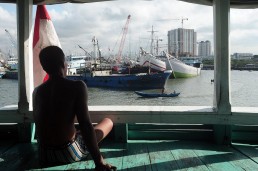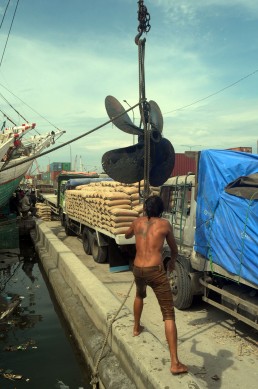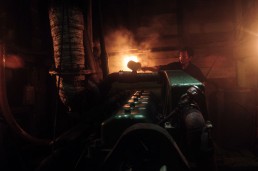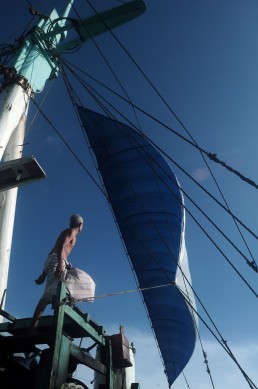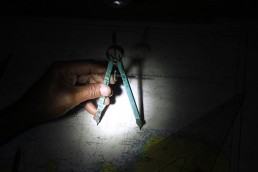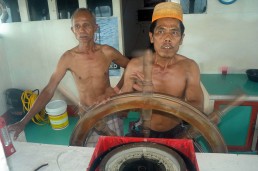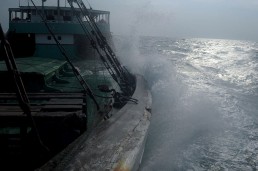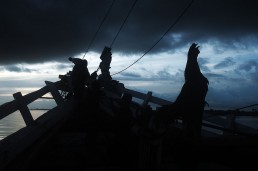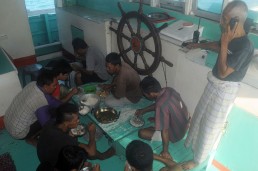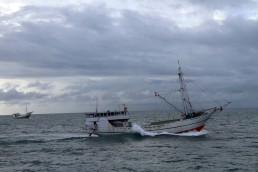The Predecessor of Pinisi Captains
THE PREDECESSOR OF PINISI CAPTAINS
Syamsudin Ilyas, Rakyat Merdeka
Muhammad Basso has been a captain of a motorized sailing ship locally called Pinisi for 45 years. He has a rich experience by being a captain in a number of Pinisi-category traditional sailing ships such as lepa-lepa, padewakang and lambo which now dominate the type of cargo ships in Indonesian archipelago or popularly called Nusantara.
This tiny man was born 70 years ago in a place where pinisi comes from, in Bira village, Bulukumba, South Sulawesi. He cultivated his skill since he was young by years of sailing from an island to another with other crews.
“It is not an easy thing to be a captain of pinisi. In addition to being able to assess weather condition, a captain is supposed to have a strong leadership skill. This is learnt through on the spot practice during an on the sea sailing,” said Puang Basso, who with his Pinisi Nusantara ship once won a boat sailing championship Arung Samudra in 1995.
Born into a sailor family, he grew up into a man of determination. Although he has reached an old age of 70, Puang Basso has never stopped to share his knowledge with any ship crews who are eager to learn.
According to him, he acquired his skill through the hardship he endured in dealing with merciless sea. “Bombang loppo fada bullu’ napappadai sahabatnu. Aja mu’pa’sai, cowerikki elo’ na,” which means, “Make waves and storms your friends. Don’t fight them, but just go to where the bow of the ship brings you,” said Puang Basso who still showed his good skill behind the ship’s wheel in a journey from Sunda Kelapa Port in Jakarta to Pontianak, West Kalimantan.
He has produced skillful, young captains who mostly have no high educational background. A captain’s skill to operate and navigate a pinisi is passed down from generation to generation. Nature also teaches the ship captain how to survive a storm wave attack.
No special ritual is needed before letting a pinisi captain run his maiden voyage. Naturally, one could be a captain anytime as long as he has already gotten the mastery in defining directions and the motion of stars.
In the midst of the ongoing modernization of sea transports where cargo vessels and fisherman ships compete to run faster using new technology, the regeneration process of pinisi captain goes on by inheriting valuable lesson and experience to a new generation who will take over the position of the old captain.
“Although the sails have been replaced by a motor, the ship wheel is changed into a hydraulic mode, as long as there are waves and wind, we keep passing this down to the next generation,” said M. Basso.

